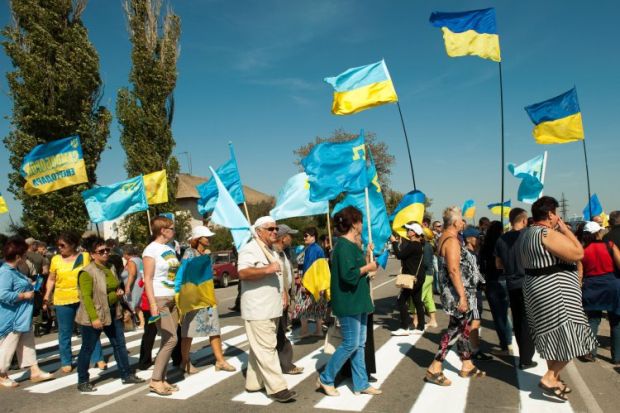
Blocking Crimea
On September 20, the Crimean Tatars started a campaign blocking the food trucks heading to Crimea. UNIAN asked the experts whether the activists will be able to achieve their goals and what the prospects are for the blockade of the Russia-annexed the peninsula.
As the campaign on a so-called food blockade continues, its organizers, the Crimean Tatars, stress: Ukrainian companies must stop trade relations with Crimea, which is occupied by the Russian Federation.
Some 500 activists rallying outside three main check points at the administrative border name de-occupation of Crimea and the restoration of Ukraine’s territorial integrity as their main goal. According to Mustafa Dzhemilev, Crimean Tatar leader, Ukrainian presidential envoy for Crimean Tatar People's affairs, the blockade has several goals. The organizers demand release of the Ukrainian political prisoners held captive in Crimea and in Russia: Akhtem Chiygoza, Mustafa Degermendzhy, Ali Asanov, Tahir Smedlyaev, Oleksandr Kostenko, and also Nadia Savchenko and Oleh Sentsov. Oleksandr Kolchenko, Gennady Afanasyev, and others.
The activists name de-occupation of Crimea and the restoration of Ukraine’s territorial integrity as their main goal.
In addition, they demand from Russia to lift the Crimea entry ban against Crimean Tatar leaders Mustafa Dzhemilev and Refat Chubarov, as well as against the activists of the national movement Ismet Yuksel Sinaver Kadyrov.
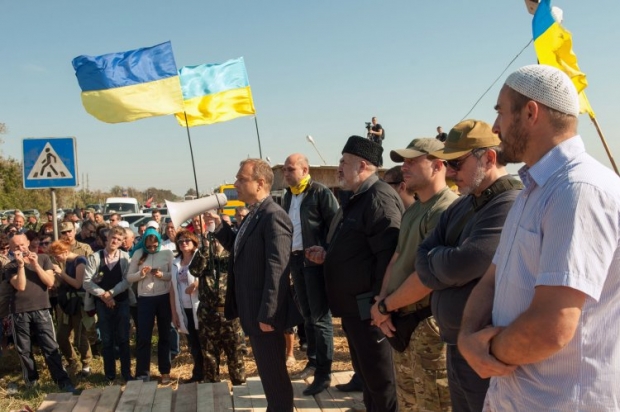
Finally, the campaign is called to make the Ukrainian authorities abolish the free economic zone regime in the peninsula. "Civil blockade will be a step calling on the state authorities to think about it and draft laws as soon as possible on abolishing the so-called" free economic zone" in Crimea, while creating such free economic zone in the free territory in Kherson region," said Dzhemilev.
Earlier, the chairman of the Mejlis of the Crimean Tatar people, MP Refat Chubarov did not rule out that after the "food blockade" of occupied Crimea, the Crimean Tatars will seek cuts in the supply of electricity. According to him, the decision was made in protest against the system of repression against the Crimea residents by the occupation authorities, as well as against the "unfortunate actions of the Ukrainian government, causing problems with movement."
Meanwhile, in order not to give up on the Crimean people, Ukraine should set up grocery markets on the mainland side of the border, where the Crimean residents would be able to buy food at affordable prices, according to Chubarov. On the one hand, it will cut the flow of funds to the occupiers, who in turn use these funds to conduct searches and pogroms in the homes of the Crimean Tatars. On the other hand it will make the Ukrainian businessmen who trade with Crimea “work transparently so that the money stays in Ukraine.”
“Hybrid” blocade
Protesters claim that they prevented 230 food trucks from entering the peninsula in the first day alone. "There were no direct conflicts with the truck drivers, although there were very hot and lively discussions," said Chubarov. "We understand their motivations and arguments, while we explained to them our position," - he said.
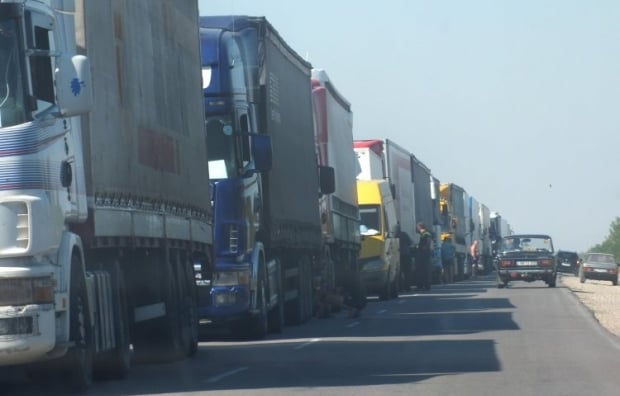
"The situation with Crimea turned as hybrid as the [Russia’s] military operations in Donbas, as well as the policy of the Ukrainian authorities,” said political strategist, director of the Third Sector Center Andriy Zolotaryov. “While we speak of the annexation, we continue, nevertheless, to trade quite intensively. Therefore it is necessary to choose, either we go for the economic losses pursuing a consistent state policy, or what is fuss all about anyway around the flow of food trucks to Crimea and Crimean stores full of Ukraine-made goods?"
According to the expert, the rally of the Crimean Tatars is akin to the volunteer movement, when the state only declares some actions, but in reality it’s the activists who implement them.
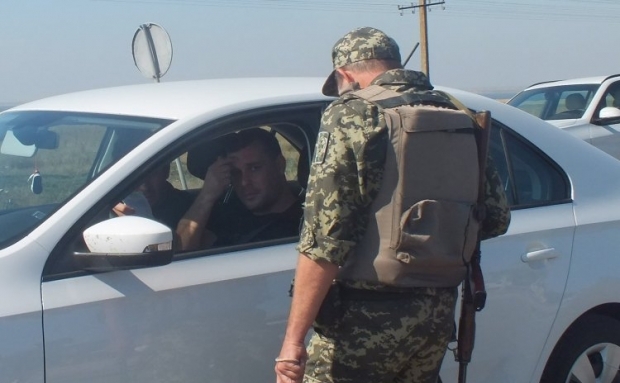
In turn, co-director of foreign policy and international security programs at the Razumkov Center Oleksiy Melnyk said that what is happening at the administrative border with Crimea is not quite the blockade. The expert notes that the organizers did not aim at creating obstacles for ordinary citizens who cross the “border.” “The organizers of this rally have repeatedly stated that the issue concerns the termination of the organized supply of goods to Crimea, as it is absolutely absurd, when there is an occupied territory, a de facto state of war, while Ukraine not only continues but also increases the volume of trade [with Crimea], and at the same time begs for introduction of international sanctions," he said.
The economic blockade of Crimea by activists is a slap in the face of Ukraine’s authorities.
"There are polar points of view regarding timeliness and effectiveness of the rally, but I don’t quite understand the position of opponents, who assert the futility and backwardness of such move. In my opinion what the Ukrainian activists and, in the first place, the leadership of the Mejlis are doing now is a strong move that sends a signal, not only to the Russian occupiers, but also, inter alia, the Ukrainian government, Ukrainian public, on how it is necessary to counter the aggressor," said Melnyk.
MP Dmytro Tymchuk echoes the opinion that the blockade by the activists is a slap in the face of Ukraine’s authorities. "[It’s] A slap because the state had to do it back in the spring of 2014. But for some reason Kyiv still stubbornly fails to understand why the war and occupation should be an obstacle for business,” he wrote on Facebook. “And there is no point in whining that the economic interests of Ukraine and of the individual businessmen would be hurt. We either fight for the territorial integrity and engage in a battle (including at the "economic front"), or we trade. However, it’s no secret that it’s the troops who win wars, not the traders. "
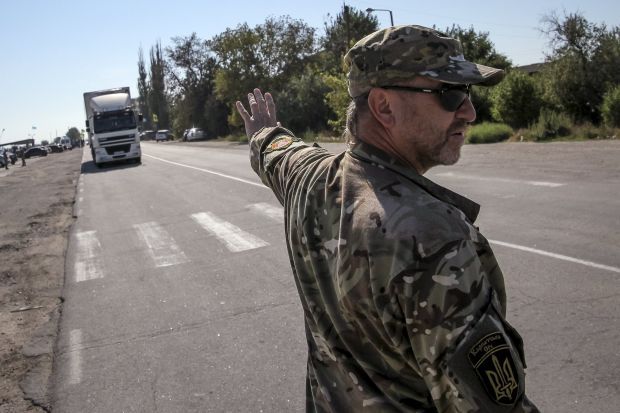
In turn, Volodymyr Fesenko, a political scientist, head of Penta Center for applied political studies, notes that a tight blockade of Crimea [by the state of Ukraine] would have increased a number of risks, including retaliatory military action by Russia. It may also result in breaking up relations with Crimean residents in social and humanitarian areas. "Why is this blockade actually happening? Firstly, it is the response of the Crimean Tatars to the repression against activists in Crimea. Secondly, there is a certain immoral situation, when, despite the annexation of Crimea by Russia, trade relations between Ukrainian businesses and Crimea have been actively developing. Crimea is now bringing even more money than last year. In particular, this is due to Crimea’s surreal status as a free economic zone of Ukraine," he said.
To trade of to fight?
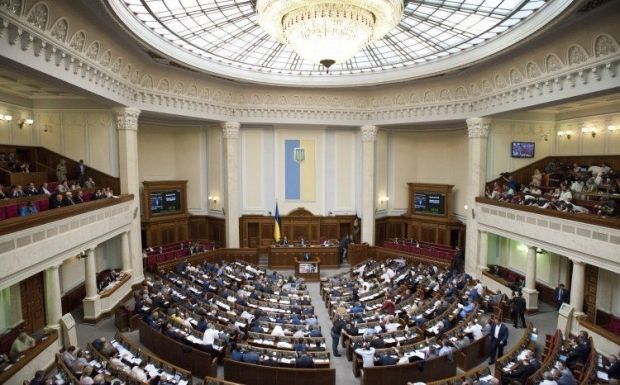
In general, all experts agree that the law on a free economic zone in Crimea should be abolished (as urged by the Crimean Tatars). "From the very first lines of the preamble of the law on setting up a “Crimea” free economic zone, where the rationale for the introduction of such a law is given, the question arises, where the authors of this document were at the time of writing. It seems as if nothing happened in February-March of 2014. I don’t know whether the law will be abolished, but I am absolutely sure that the law should be abolished as soon as possible," said Oleksiy Melnyk.
Energy blockade of the peninsula can only be achieved under the condition that the Ukrainian government takes such step consciously and deliberately.
In turn, Andriy Zolotaryov believes that the above-mentioned law may be abolished, as the existing flow of goods to Crimea "is one of the consequences of this law."
Meanwhile, the experts think that the energy blockade of the peninsula, which is among the activists’ demands, can only be achieved under the condition that the Ukrainian government takes such step consciously and deliberately. "Representatives of the Mejlis may go out at the pedestrian crossings and block the vehicles, but the energy blockade is impossible without the political will of the state. In view of the specific relationship that has developed between our authorities and Donbas, talking about the energy blockade of Crimea is nothing but wishful thinking of the Mejlis officials," said Zolotaryov.
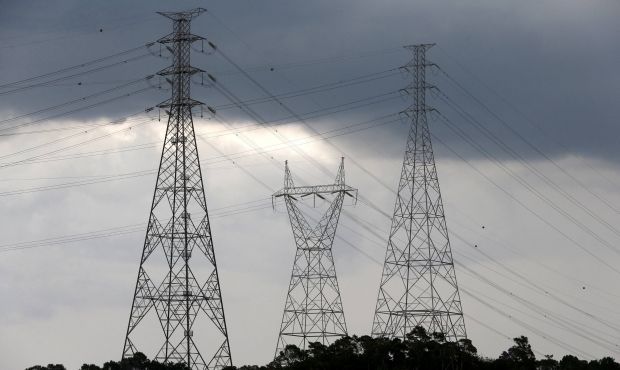
"This is why there is an ongoing struggle aimed at abolishing the [free] economic zone. And, I think it’s possible to achieve this goal,” said Volodymyr Fesenko. “We can also get a more reliable, more accurate and transparent control of the trade flows with Crimea, but the complete cessation of economic relations with Crimea is unlikely. Moreover, this can have ambiguous political and socio-economic consequences for Ukraine."
At this stage, maximum effort should be made to “complicate” the life of the aggressor, to make Russia pay the highest possible price for the annexation of Crimea and everything it does against Ukraine.
In turn, Oleksiy Melnyk said that it’s too early to talk about Crimea’s reintegration in the Ukrainian legal, humanitarian and social framework. Today it is important to define at least, are we trading, or are we fighting. "Now the primary task is to revive the relevance of the issue of Crimea’s return, " he said.
Experts agree that, at this stage, maximum effort should be made to “complicate” the life of the aggressor, to make Russia pay the highest possible price for the annexation of Crimea and everything it does against Ukraine. However, we should not exclude that the blockade of Crimea will provoke another round of confrontation between Russia and Ukraine on other issues, like the gas talks or the blocking of the Minsk peace process.
Kostyantyn Honcharov
UNIAN update: On September 25, Ukrainian President Petro Poroshenko initiated the procedure to abolish the free economic zone in Crimea, according to Refat Chubarov..

